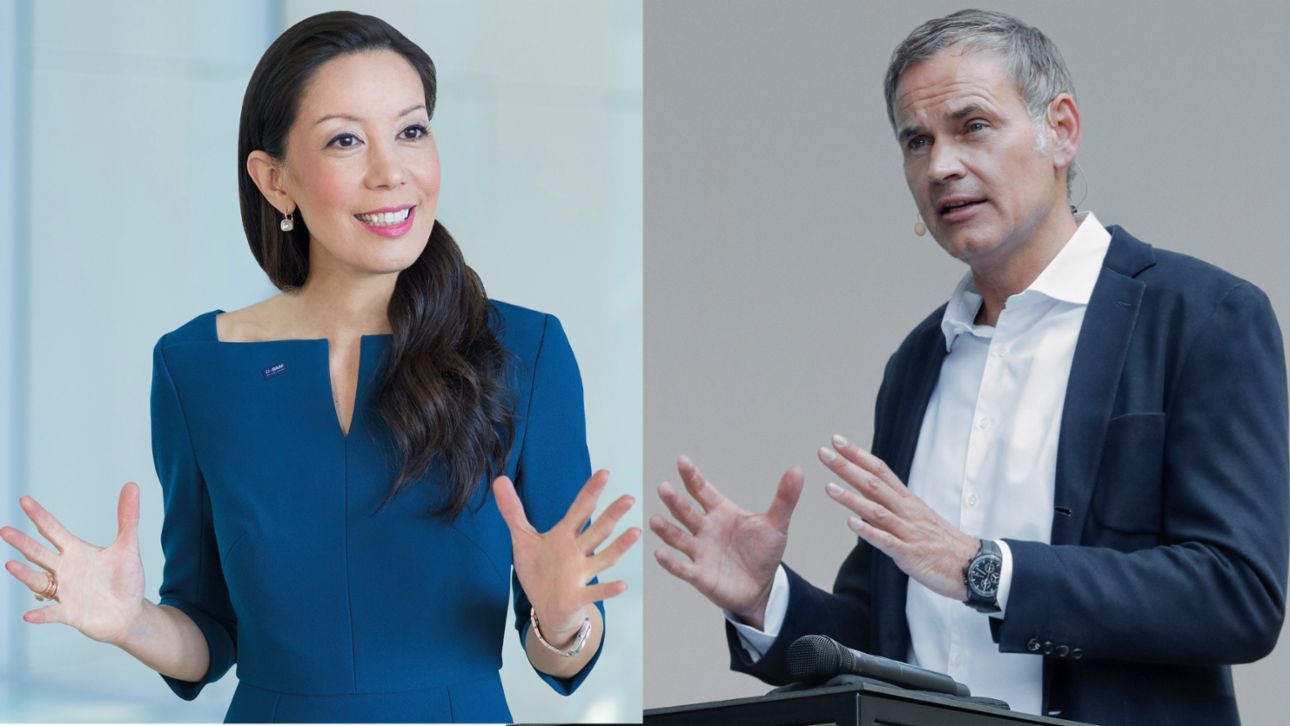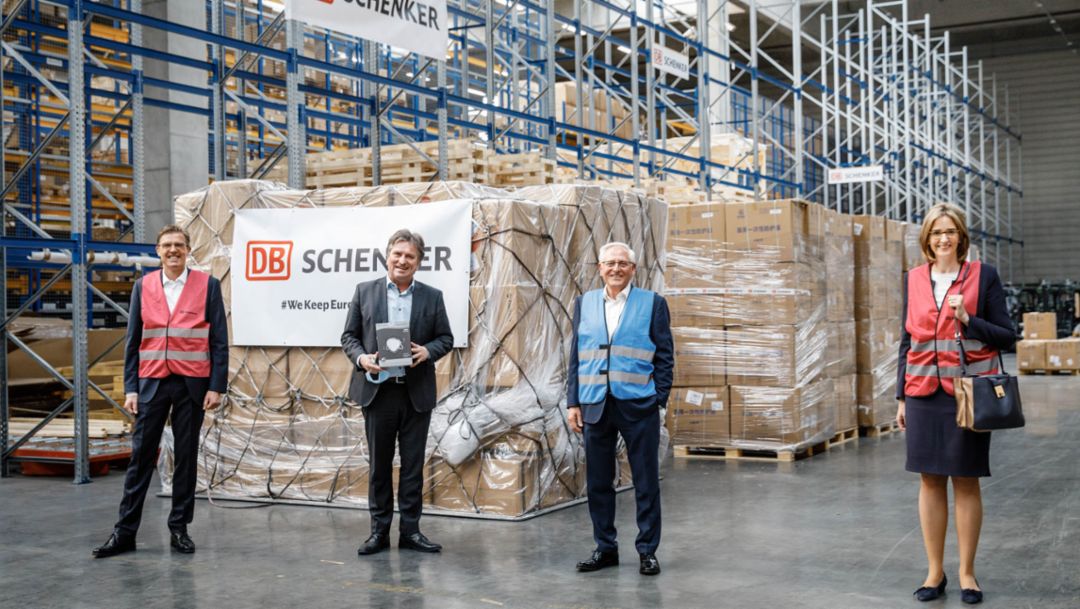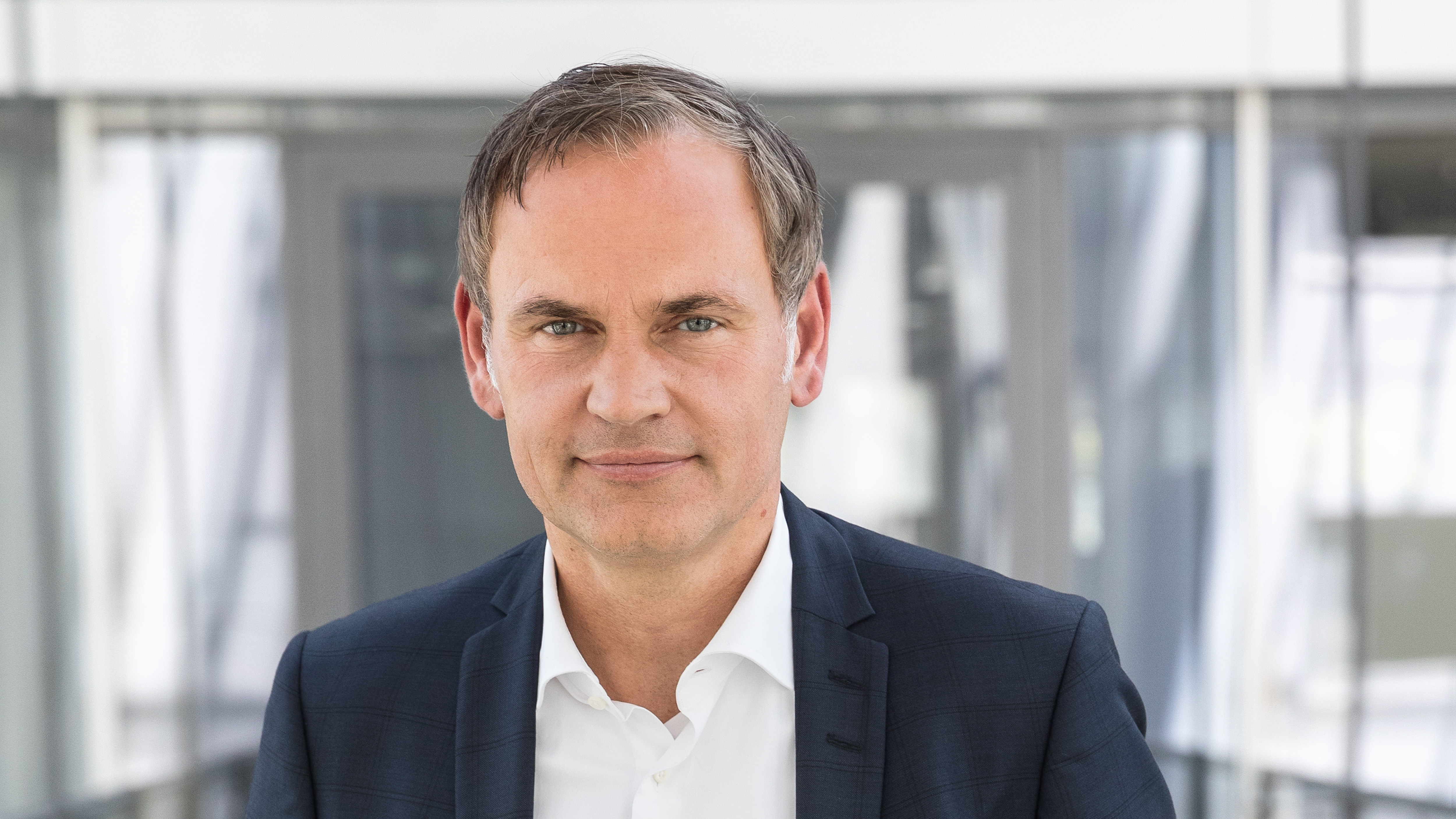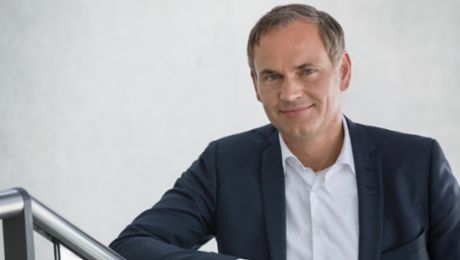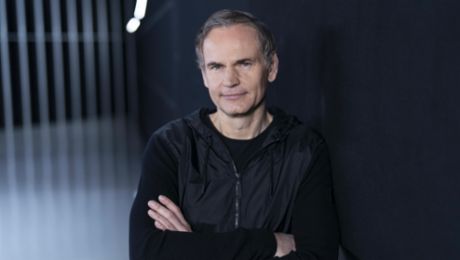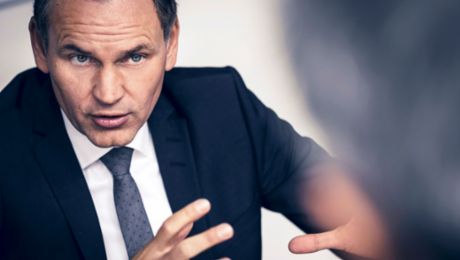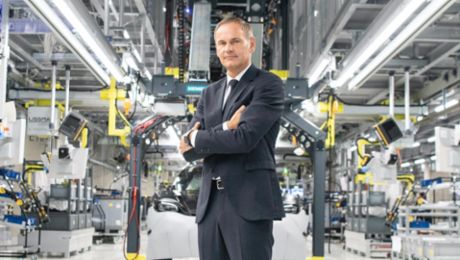In the coronavirus crisis, citizens and politicians alike are questioning what responsibilities should be shouldered by companies and managers. But is it worthwhile for a company to show consideration for society and the environment? This is what is occupying the thoughts of BASF Executive Board Member Saori Dubourg and Porsche CEO Oliver Blume. Their groups are members of the recently founded “Value Balancing Alliance”. The Value Balancing Alliance is working on measuring the contributions made by companies to society in financial terms.
Ms Dubourg, Mr Blume, in a crisis, is anybody really interested in how values are measured?
Oliver Blume: Two aspects are important, especially in these times: providing sustainable support for society and making this sustainable action more measurable – economically, ecologically, socially.
Saori Dubourg: The core issue is: how many of these viruses can we actually afford? How do we get better at factoring in macroeconomic values as well as risks, and how do we use this to generate more transparency for investors, thereby contributing to market stabilisation?
That sounds very abstract.
Dubourg: The objective of the Value Balancing Alliance is to also represent the social market economy in terms of a financial balance. We need a simple and pragmatic common language that can be used and understood by institutions and business alike.
Does this mean that your alliance has unexpectedly gained particular importance during the coronavirus crisis?
Dubourg: Yes, definitively. A company’s values are its inner compass, they must prove their worth now in the crisis more than ever. At BASF, the value contribution is based on three pillars: economic success, social security and environmental protection. You can see how closely these topics are linked, especially now as we are restarting the economy.
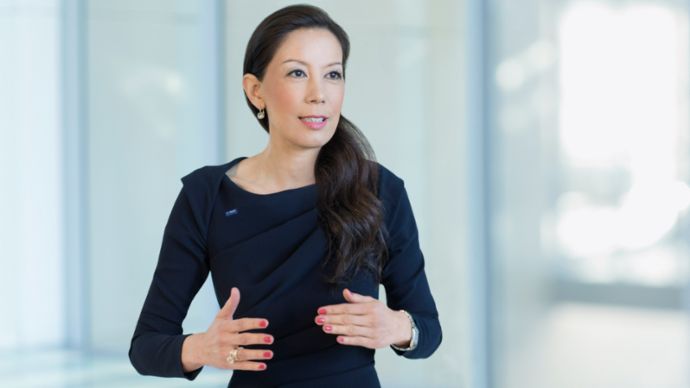
Why?
Dubourg: You can see how closely wages and purchasing power are interlinked, as well as the consequences of uncertainty on demand behaviour. In 2017, we calculated our value contribution, along with that of all our suppliers and customers, that is generated by buying power – it amounts to almost 70 billion euros. All that just by paying the wages. This macroeconomic contribution is not yet represented in the financial statements today.
Blume: In this way, we give more importance to ecological and social aspects. For employees and for society, as well as for investors. Up to now, a company’s success has been measured economically through sales revenue and results. We would like to expand on this.
That does not help very much right now when many companies are simply fighting for survival.
Blume: But it will help to offer perspective. Of course, right now the priority is to manage the coronavirus crisis systematically and responsibly. At Porsche, we are concentrating on where we can help as a company. In recent weeks, we have provided support to the crisis task forces of Baden-Württemberg and Saxony in the form of consulting and IT experts. We have taken the lead in procuring protective equipment from China for both federal states. We have encouraged our employees to help charities in a voluntary capacity and we are making financial donations to charitable organisations all over the world. This is part of our identity as a company.
And that should be included in financial statements?
Dubourg: This could be included in the balance sheet even if the examples are very specific. However, not just the environment, but human resources will also be an important topic for value balancing, for instance due to the company‘s contribution to education with company training and development.
Blume: Education and training are extremely important. Environmental protection can be economically efficient as well. In the automotive industry, we look at the entire supply chain, for example: how much water are we using, how high are the emissions, how can waste be reduced? Which subsequent costs can be avoided? The answers could be interesting not just for investors, but for society as well.
Supply chains can collapse very quickly, Mr Blume, as we are currently experiencing. Does the coronavirus crisis give us cause to rethink supply chains?
Blume: A crisis also provides opportunities. We are all challenged to concentrate on what is important. This includes supply chains at Porsche as well. Which journeys are really necessary, how can we reduce the logistics effort? We are asking ourselves how sustainable our supply chain is. In the Group, we have developed a rating system for suppliers which includes ecological and social components. It is an important factor to be considered when awarding contracts.
In future, will companies diversify more in terms of the number of suppliers and countries of origin?
Dubourg: Our main principle has always been to locate production where our customers are. We have implemented this principle consistently in recent years, and this is something which is currently paying dividends at BASF. But we are currently seeing discussions among our customers in the pharmaceutical sector concerning the global value chains for medical intermediate products.
Blume: It would be wrong to completely call into question globalisation now. On the whole, globalisation and free international trade have increased prosperity. This includes health, education and security. And sustainability develops its full benefit when society is stable and intact around the world.
In times of crisis, isn’t it the greatest value contribution of a manager to above all preserve jobs and secure the future of the company?
Blume: Of course, it is a company’s responsibility to preserve jobs. But also to create value. To look after each other, like in a family. The central elements of our culture at Porsche are more important than ever. At the same time, companies also have an obligation to society and shareholders.
Which leads us to a point of contention: should dividends and bonuses be paid while benefiting from public-sector loans and short-time allowances at the same time?
Blume: Things get mixed up in the debate. Public-sector loans are indeed a form of government aid. The Volkswagen Group is not making use of that. On the other hand, the money for short-time allowances comes from contributions made by employers and employees over the course of many years. This is an insurance payment. In the last ten years, the Volkswagen Group and its workforce have paid approximately four billion euros into this unemployment insurance. This is used to preserve jobs in times of crisis.
Dividends ...
Blume: ... have one purpose: whoever purchases shares in a company can participate in the development of the company. This applies to international investors as well as to small investors who are safeguarding their pension. Dividends are like looking in a rear-view mirror, not a guarantee for the future. On the subject of bonuses, all employees at Porsche receive a performance bonus as part of their wage. We think it is important to show appreciation for the performance of the past business year and to have people participate in the success of the company. We also generate purchasing power by doing this. For the retail sector, craft businesses or restaurant trade.
Why do we still need a buyer’s premium for cars in this case?
Blume: It is about supporting our country as a whole as it is opening up again. How can we kick-start the entire economy quickly and how can we achieve a long-term impact. This is about jobs, taxes and consumer spending. The discussion must take into account the complete picture. Whether it is a purchase incentive, investment support or tax relief: at the end of the day, politicians make the decisions concerning the distribution of funds and where the correct leverage can be applied.
And you believe that is within your industry?
Blume: The automotive industry offers very good leverage. Every seventh person in Germany works in this economic sector. Numerous suggestions have been made to the German federal government which should also definitively be developed technologically and innovatively. Intelligent steps which would help expand the charging infrastructure would also be helpful. Speed is more important than anything. People can then get their bearings on the basis of the political decisions.
Ms Dubourg, would it add positive value to the balance sheet if companies were to make provisions for crises instead of applying for government aid?
Dubourg: Sustainability means reliability for the stakeholders: shareholders, customers, employees, society. The financial outcome is already represented today. What we would like to highlight more is how much companies invest in the future, for example in the environment. Environmental risks are increasingly becoming risks to capital as well.
Blume: The value balance initiative will result in us sharpening our performance indicators. And enable us to operate with a greater focus on the future. With the interests of society in mind.
Dubourg: At the moment, the capital market only assesses future investments in a limited capacity. There is a lack of transparency.
Is there a risk of climate protection, the major topic of 2019, now being forgotten?
Dubourg: No, I don’t think so. I can only speak for our company: we have not stopped investing in environmental technologies. Optimum resource utilisation is part of the DNA at BASF. The company founder Engelhorn was convinced that he could still make good use of waste. This gave birth to our Group’s concept of resource utilisation. The coronavirus crisis will not change our stance on efficient resource utilisation.
Blume: I believe that the coronavirus crisis will even heighten our environmental awareness. Customer behaviour will change after the crisis because many will question what really matters in life. This could provide additional impetus for environmentally friendly technologies. At Porsche, we are keeping to our objectives – and are also getting advice from renowned experts. We are already manufacturing carbon-neutrally in Zuffenhausen, and about half of our fleet will be electric by 2025.
And what about the voices in the automotive industry who are calling for extensions to climate protection targets?
Blume: I do not think much of that. Together, we all have the responsibility to make our world a place that is worth living in. There is no alternative to investments in innovative technologies. Every individual is challenged to align their inner compass accordingly.
Have we lost our way in this respect in the coronavirus crisis?
Blume: No. I am seeing more awareness. The important thing is to keep people at the centre, independently of the coronavirus. It is also a management philosophy if I can say: I have stayed true to myself in my actions.
What do you personally value?
Blume: In ten years time, I want to be able to look back and say: what the team and I have accomplished has lasting value for society.
Dubourg: Our responsibility for the next generation. Because our generation is probably the last one that can still make decisions which will determine the course of climate change and digitality. We really have to think about the opportunities as well as the consequences.
Vita
Saori Dubourg
The German-Japanese executive is a home-grown BASF talent. The 49-year-old has been a member of the Executive Board since 2017 and her responsibilities include agricultural chemistry and nutrition.
Oliver Blume
The mechanical engineer represents the entire Volkswagen Group on the subject of sustainable company management. The 51-year-old became CEO of Porsche in 2015.
Value Balancing Alliance
The initiative founded in 2019 aims to integrate the contributions made by companies to society in the balance sheet. Standards and principles are to be developed for this purpose. As well as BASF, its founders include Bosch, Deutsche Bank and SAP. Porsche joined at a later point.
Info
This text was first published in Handelsblatt.
The interview was conducted by Dieter Fockenbrock and Kirsten Ludowig.
